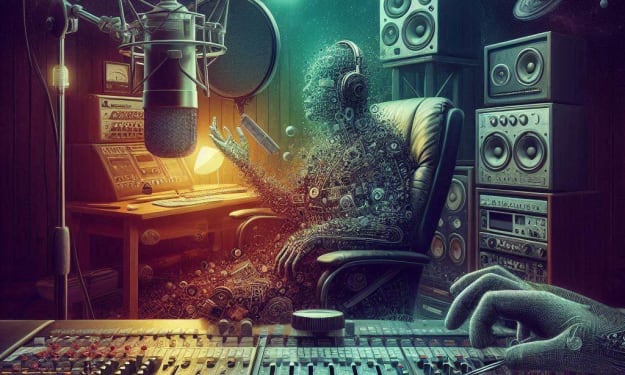The Power of AI:
Transforming the Future with Artificial Intelligence

The Power of AI: Transforming the Future with Artificial Intelligence
Artificial Intelligence (AI) is revolutionizing the way we live, work, and interact with technology. With its ability to process vast amounts of data, learn from experience, and make predictions, AI has become an integral part of our daily lives. From voice assistants like Siri and Alexa to self-driving cars and personalized recommendations on online platforms, AI is shaping the future in remarkable ways. In this article, we explore the power of AI and its transformative potential across various industries.
AI, often referred to as machine intelligence, encompasses the development of computer systems capable of performing tasks that typically require human intelligence. These systems can analyze complex data, recognize patterns, and make decisions based on algorithms and statistical models. The key to AI lies in its ability to learn and improve from experience, leading to more accurate results over time. By leveraging AI, businesses can gain valuable insights, optimize operations, and enhance the customer experience.
The Impact of AI in Healthcare
AI is revolutionizing the healthcare industry, enabling more accurate diagnostics, personalized treatments, and improved patient care. With advanced AI algorithms, medical professionals can analyze medical images, such as X-rays and MRIs, to detect anomalies and identify potential health risks with greater precision. AI-powered chatbots and virtual assistants can also provide patients with instant access to healthcare information and assist in diagnosing common ailments.
Furthermore, AI can enhance drug discovery and development by accelerating the identification of potential drug candidates and predicting their effectiveness. By analyzing vast amounts of scientific literature and patient data, AI algorithms can uncover patterns and relationships that might otherwise be missed, leading to more efficient drug development processes and improved patient outcomes.
Transforming the Manufacturing Industry with AI
The manufacturing industry is undergoing a significant transformation with the integration of AI technologies. AI-powered robots and automation systems are streamlining production processes, reducing errors, and increasing productivity. These robots can perform repetitive tasks with precision, leading to faster production cycles and improved product quality. Additionally, AI-enabled predictive maintenance systems can detect potential equipment failures in advance, minimizing downtime and optimizing maintenance schedules.
AI's impact on supply chain management is also noteworthy. By analyzing historical data and real-time information, AI algorithms can optimize inventory levels, predict demand fluctuations, and improve overall supply chain efficiency. This enables manufacturers to reduce costs, minimize stockouts, and deliver products to customers more effectively.
Unlocking AI's Potential in Financial Services
The financial services sector is leveraging AI to enhance decision-making processes, detect fraud, and personalize customer experiences. AI-powered algorithms can analyze vast amounts of financial data to identify patterns and trends, enabling more accurate risk assessments and investment predictions. This helps financial institutions make informed decisions and offer personalized investment advice to their clients.
AI chatbots and virtual assistants are also transforming customer interactions in the financial sector. These intelligent systems can provide personalized recommendations, assist with account management, and offer real-time support. By leveraging natural language processing and machine learning, AI-powered chatbots can understand and respond to customer queries, improving customer satisfaction and reducing response times.
Frequently Asked Questions
1. How is AI impacting job opportunities?
AI is reshaping the job market by automating repetitive tasks and augmenting human capabilities. While some roles may be replaced by AI, new job opportunities are emerging in AI development, data analysis, and AI ethics. AI can also complement human skills, allowing professionals to focus on more complex and creative tasks.
2. Is AI safe and secure?
AI systems are designed with security in mind, but like any technology, they can have vulnerabilities. It's crucial to implement robust security measures and ensure ethical AI practices to safeguard against potential risks. Regular audits, encryption, and privacy protection are essential for maintaining the security and integrity of AI systems.
3. Can AI replace human intelligence?
No, AI cannot fully replace human intelligence. While AI excels at data processing, pattern recognition, and repetitive tasks, it lacks the nuanced understanding, empathy, and creativity that humans possess. The synergy between AI and human intelligence is key to unlocking the full potential of AI technology.
4. How is AI being used in the transportation industry?
AI is revolutionizing the transportation industry through self-driving vehicles, predictive maintenance, and traffic optimization. Self-driving cars equipped with AI algorithms can enhance road safety, reduce congestion, and improve fuel efficiency. AI also enables transportation companies to optimize logistics, routing, and fleet management, leading to cost savings and improved customer experiences.
5. What are the ethical considerations surrounding AI?
As AI becomes more pervasive, ethical considerations are crucial. Transparency, fairness, and accountability in AI algorithms are vital to prevent biased decision-making or discriminatory practices. Striking a balance between innovation and ethical use of AI is essential to ensure its benefits are maximized while minimizing potential risks.
Artificial Intelligence is transforming our world, offering unprecedented opportunities across industries. From healthcare and manufacturing to finance and transportation, AI is revolutionizing processes, improving decision-making, and enhancing customer experiences. While there are challenges and ethical considerations to address, the potential of AI to shape a better future is undeniable. By harnessing the power of AI responsibly, we can unlock new possibilities and create a more intelligent and connected world.
About the Creator
Zain Siddiqui
I'm excited to connect with fellow writers and readers from around the world. I invite you to check out my stories and join me on a journey of imagination and discovery. Thanks for reading!
Enjoyed the story? Support the Creator.
Subscribe for free to receive all their stories in your feed. You could also pledge your support or give them a one-off tip, letting them know you appreciate their work.





Comments
There are no comments for this story
Be the first to respond and start the conversation.